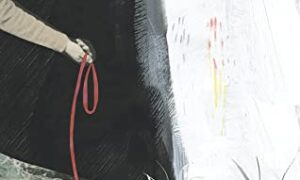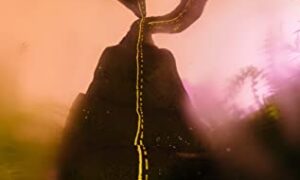 Below the Big Blue Sky by Anna McPartlin
Below the Big Blue Sky by Anna McPartlin
My rating: 3/5 cats



fulfilling my 2022 goal to read one book each month that was not published in my country that i wanted badly enough to have a copy shipped to me from abroad and then…never read.
i didn’t like this one nearly as much as The Last Days of Rabbit Hayes and now i’ve gone and brought it into the country like that shakespeare fanboy did with the starling and look what happened there.
i’m not saying that reading this book was as bad an idea as loosing a destructive invasive species into a whole unsuspecting ecosystem, but still—it was kind of a letdown.
The Last Days of Rabbit Hayes was about a big irish family seeing their beloved daughter/sister/aunt/mother rabbit through the final days of her terminal illness.
it was a vibrant story of a life well-lived; a larger-than-life character developed layer upon layer through the bittersweet memories of those about to lose her, and what made it such a striking and memorable book was how determined both rabbit and her family were to celebrate her life instead of dwelling on her impending death; telling stories and filling her hospital room with irish black humo(u)r instead of maudlin grief.
Below the Big Blue Sky is the grief book, where all of the sadness they’d suppressed for rabbit’s sake is set free to seep into what’s left of their lives now that she’s gone. and it’s pretty bleak.
sure, there’s some humo(u)r to relieve the relentless mourning, but mostly it’s about the myriad ways that grief can be experienced on the path to healing. i am someone who struggles with becoming emotionally invested in fictional stories, and it’s pretty stifling, as an empathically-challenged reader, to be immersed in secondhand grief. the way the rabbit’s family dealt with the approach of her death was life-affirming, but they way they deal with grief is just…grief. over the course of a year, each character experiences her loss in their own individual ways: losing god, finding a cause, hiding out in the past, leaving the country, making drastic health choices, plowing through the pain using various shields—work, relationships, any distraction at hand to get through it, but regardless of how they choose to manage their loss, it all kind of reads the same—sadness is pretty one-dimensional.
my main complaint (other than the obvious fact that it’s uplifting to read about a family coming together in a time of crisis and it’s exhausting to read about them falling apart), is the great rabbit hayes herself.
i loved rabbit in the first book—she was sweet and funny and kind and resourceful and flawed, living her life and facing her death on her own terms. her character was vividly drawn through her family’s memories of her life’s ups and downs and the book was a perfect living eulogy to an individual who touched so many lives.
BUT—if you haven’t read that book (or if you don’t remember enough about it, considering there were seven years between the two books’ pub dates), it’s probably hard to understand the magnitude of the rabbit-shaped hole in everyone’s lives, since this doesn’t do much beyond sketching out the barest outline of her character.
so, it’s counting on your having read the first one, where you, too, fell in love with rabbit. if you haven’t, it’s hard to understand why she was Everyone’s Favorite Person, and the hagiography gets a bit overwrought:
‘The last time I saw you I was running you over,’ Molly said.
‘That’s right, I still have a scar on me elbow.’ He showed it to her.
‘Where?’
‘There,’ he said, pointing to a small faded scar.
‘That’s not a scar,’ she said, pulling out a photo of a beaming Rabbit showing off a long, stitched cut on her forearm.’That’s a scar.’
rabbit hayes even got injured better than everyone else.
every page is a parade of ‘rabbit said this’ and ‘rabbit believed that,’ and these cardboard-prop reminders are too flimsy to do the work The Last Days of Rabbit Hayes did in fleshing out her character, so everyone comes across as pathologically obsessed with this woman, building a whole laura palmer-sized mythology (but w/o the trainwreck personality) around her memory.
while it’s natural that she is remembered with such fervent love and admiration from her immediate family, the extension of this rabbit-worship into even her casual acquaintances seems forced and it’s a little unsettling that the minutia of her life is still being trotted out with such excessive scrutiny a year after her death by people whose lives were only tangentially connected to hers.
i get that there’s a whole smalltown legend built around her: she died young, the local-boy love of her life died much younger—there’s a bittersweet doomed romance angle to their love story that is appealing, but it just doesn’t come across in this book the way it did in The Last Days of Rabbit Hayes, and the johnny-stuff in this one was, frankly, a little cheesy and kind of tainted the allure for me.
i thought i was taking an emotional risk with this one—it was a bad time of year for me to be reading something so saturated in grief, but honestly—i thought it was a little boring. it just didn’t have the sparkle of the first one, and i couldn’t connect to any of the characters, although her father—holed up alone reading years’ worth of diaries written in happier times while everyone around him spins out of control, and her sister grace—electing to have aggressive preventative surgery to avoid dying of the same cancer that killed rabbit, were very moving portrayals.
i’m glad i read it—there are some strong moments, and it’s a perfectly fine, sweet book, but i’m more glad that i read The Last Days of Rabbit Hayes, because i need a little more than sweet to fall in love.
***********************
i only recently learned that this book, a sequel to the phenomenal The Last Days of Rabbit Hayes, existed, and i wish enough americans had read and praised that book to have made it worth the publisher’s effort to publish it here, but MAYBE THERE’S STILL TIME!
and maybe my review will convince you to check it out!
read my book reviews on goodreads







